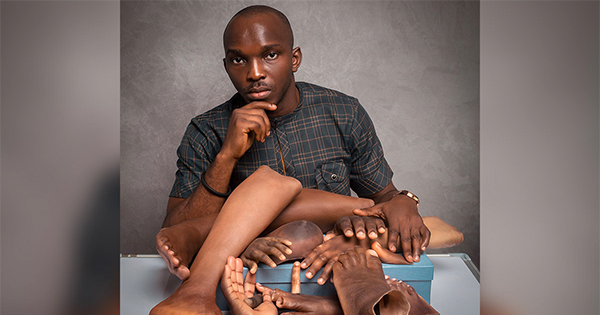Meet John Amanam, a Nigerian entrepreneur and the first African sculptor specializing in hyperrealistic prosthetics for Black amputees. With a bachelor’s degree in Arts and fueled by a personal mission to address the lack of skin-tone-matching prosthetics in the market, Amanam founded his company Immortal Cosmetic Art Ltd.
It all started when Amanam’s family ordered a prosthesis from abroad for his brother who lost a limb in an accident, but it didn’t match his skin color. Amanam, armed with a degree in fine and industrial arts, decided to create a prosthetic covering that matched his brother’s brown skin.

Turning a personal challenge into a career, Amanam now produces flesh covers for lost body parts, such as ears, noses, fingers, and breast forms, that especially match the skin color. He aims to provide comfort and boost the self-esteem of those who’ve experienced limb loss.
“It is important for comfort,” Amanam told Afro News. “When you go out there and you find out people are looking at your hand — possibly White on Black skin — it could cause discomfort.”

Amanam takes pride in being the first to prioritize hyperrealism in prosthetics. He meticulously sculpts each item, ensuring veins and nails are visible, making them indistinguishable from real body parts.
“There’s a difference between something being naturalistic and something being realistic,” he said. “You could look at a leg, or a product that looks like a leg, and say, ‘Yeah, this is a leg.’ But you could look at the fake leg and say, ‘Ah, this could [be real ].’ The difference is not being able to differentiate which one is real and which one is not real.”
Despite the challenges of meeting high demands, Amanam’s goal is to expand his company and make his products available across Africa. He stresses the importance of Africans addressing their problems and finding solutions on their own terms.
“It’s imperative that we as Africans try to look into our problems. Use our brains, our resources, and find a way of solving our problem,” he said. “If the White man would solve your problem, he only did it to suit his own needs and his own profit, the African would do it to suit the African society.”